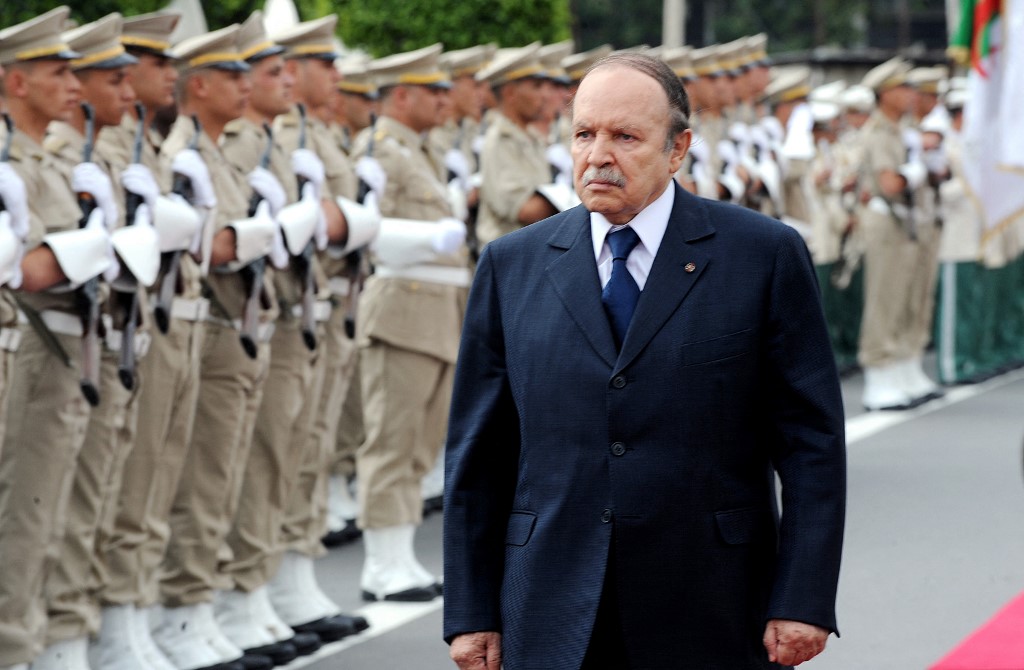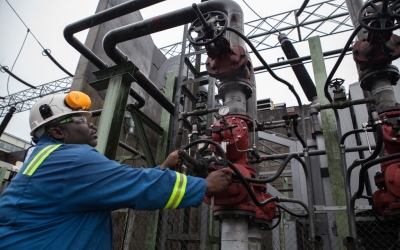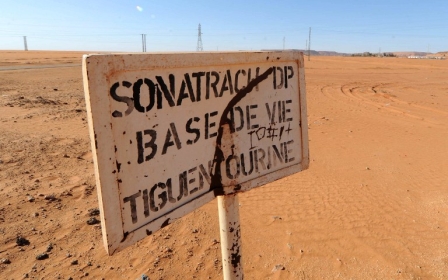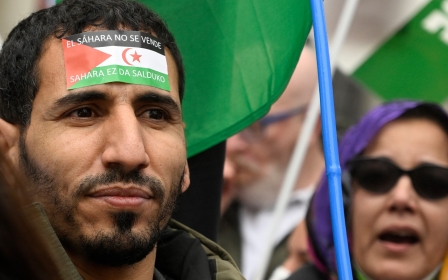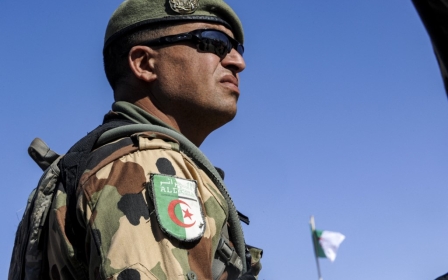Why Algeria needs a long-term plan to develop its energy sector
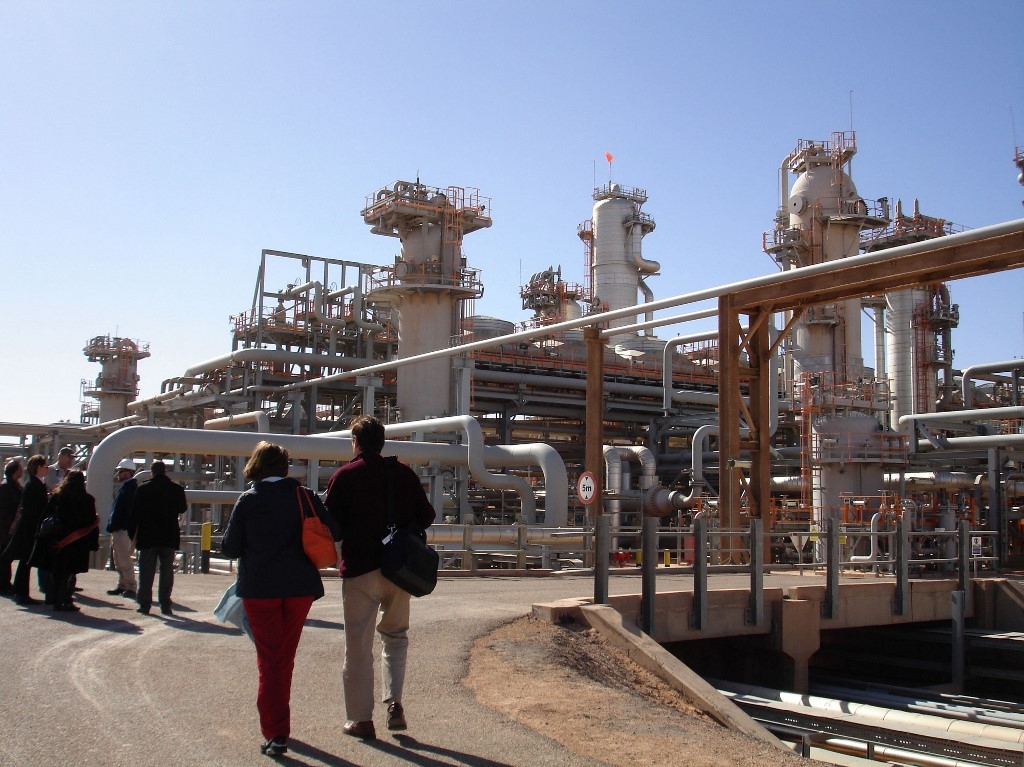
Europe is scrambling to find new sources of natural gas after the drastic cut in supplies from Russia, which last year accounted for about 40 percent of EU consumption. This would seem to present a unique opportunity for Algeria to increase its exports and help reduce Europe’s dependence on eastern gas.
According to a recent study, by capturing gas from flaring, venting and leaking in North Africa, Europe could - within one to two years - start to substitute up to 15 percent of Russian gas via underutilised pipelines and terminals in the region.
But despite the fact that there is spare capacity in the Trans-Mediterranean pipeline linking Algeria with Italy, it is unlikely that Algeria will be able to produce enough gas in the near term to meet the heightened demand. While Egypt is increasing its gas production and exports, Algeria is unlikely this year to ship more than it did in 2021, when exports totalled around 55 billion cubic metres (bcm).
As long as these issues remain unaddressed, any hopes for a credible long-term energy policy will remain a pipe dream
A lack of sufficient volume of natural gas, alongside an increase in domestic consumption, are factors in this situation. In addition, the efficiency of Algeria’s old power plants is low, and its annual losses are high; according to a 2021 World Bank report, the country squanders 13.5 percent of the 130bcm it produces annually, much of which is lost through flaring, although senior Algerian energy officials dispute these figures.
Yet, with the state-owned utility Sonelgaz maintaining a monopoly over electricity transmission and distribution in the country, there is little incentive to seek savings - and no structural reform of the energy sector seems to be on the cards.
New MEE newsletter: Jerusalem Dispatch
Sign up to get the latest insights and analysis on Israel-Palestine, alongside Turkey Unpacked and other MEE newsletters
There is no shortage of gas in Algeria, as many areas of this vast country have not been explored or need re-exploring with more modern techniques. Developing a new gas field, however, would take several years - and Europe, in the face of its current gas crunch, cannot wait that long.
Shifting geopolitics
At the same time, Europe must acknowledge that the energy policy it has pursued for decades carries a share of the blame for its current conundrum. EU buyers fought hard to reduce the long-term energy supply contracts, typically 15-20 years with Algeria’s Sonatrach, that had prevailed in the past. Such contracts offered security of supply and facilitated the development of new gas fields.
Four decades ago, then US President Ronald Reagan warned Europe to reduce its dependence on Russian gas and argued in favour of alternative sources, such as Norway and Algeria. Norwegian resources were developed, but the Europeans argued that sources such as Algeria were no more reliable than Soviet gas.
Algerian mismanagement of the energy sector persisted throughout most of the two-decade presidency of Abdelaziz Bouteflika (1999-2019), but that factor alone cannot carry all the blame for the current levels of Algerian gas production.
The geopolitics of Mediterranean gas have shifted significantly over the past year. An escalating rivalry between Algeria and Morocco resulted in the closure of the Maghreb-Europe pipeline, which runs through Morocco. While some observers believe the real reason behind this interruption was Algeria’s lack of gas, that is unlikely.
Rather, the closure of the pipeline was an extension of the acrimonious tit-for-tat that has characterised relations between the two North African countries for much of the past half-century. While Algeria continued importing gas to Spain directly via the Medgaz pipeline, relations between those two countries also soured amid Madrid’s tilt towards Morocco on the Western Sahara issue earlier this year.
But that has not slowed the flow of Algerian gas through Medgaz, which is running at between 10-11bcm annually. Spanish buyers have accepted higher prices for the gas they buy from Algeria, well aware that Sonatrach would simply switch whatever gas such buyers did not take to Italy.
North African energy links with Europe were sharply redrawn when Italy, traditionally highly dependent on Russian gas, recently signed a major gas deal with Algeria, which would see the throughput of Algerian gas via the Trans-Mediterranean pipeline increase from 21bcm annually in 2021 to 30bcm by the end of 2023. This past May, Italy's Eni also signed a deal with Sonatrach to explore and develop new sources of gas.
The way forward
A half-century ago, Algeria boasted that it would become “the Japan of Africa” by the year 2000. But nothing of the sort happened, and Algerian leaders never learned the necessary lessons from the economic successes of countries such as China, South Korea and Turkey. They persist in their refusal to allow major Algerian companies to integrate into the world market, as for decades, many experienced senior civil servants, managers and engineers in state companies - especially Sonatrach - have been pushed out, retired or sought work abroad, especially in the Gulf.
Earlier this month, Algeria’s Ministry of Energy Transition lost its responsibility for renewable energies, a portfolio that was handed to the politically lower-profile environment ministry.
Recent efforts by some in government to promote cleaner energy sources appear to have gone nowhere. In 2011, a plan to build 22,000 megawatts of power-generating capacity from renewable sources by 2030 was launched with great fanfare; today, more than a decade later, the capacity is only around 600 megawatts.
If Algeria has so little extra gas to export today, the explanation lies in the chronic institutional instability afflicting the energy sector. As long as these issues remain unaddressed, any hopes for a credible long-term energy policy will remain a pipe dream.
Dwelling on the historical reasons for Algeria’s stagnant exports might be a pointless exercise. Looking to the future, the best way forward for the country would be to fast-track gas developments in existing and newly discovered fields.
The need for a coherent, long-term plan to develop energy, reduce subsidies and develop new sources of gas is essential. For such a plan to succeed, institutional stability is vitally important. A failure to ensure such stability in a sector that accounts for 95 percent of Algeria’s foreign income will bode ill for the country’s overall economic well-being and regional influence.
The views expressed in this article belong to the author and do not necessarily reflect the editorial policy of Middle East Eye.
Middle East Eye delivers independent and unrivalled coverage and analysis of the Middle East, North Africa and beyond. To learn more about republishing this content and the associated fees, please fill out this form. More about MEE can be found here.



